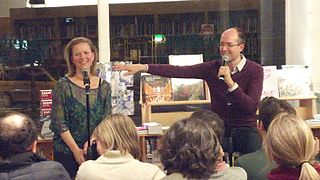A Quote by Simon Sinek
Our reputations do not come from how we talk about ourselves. Our reputations come from how others talk about us.
Related Quotes
If you want to talk about EDM, let’s talk about Detroit underground music, Chicago house and let’s talk about all the things that got us to this place. We all get on the train of dance music. We need to all respectfully look through the carriages that have come before us and realize how we got here.
If you want to talk about EDM, let's talk about Detroit underground music, Chicago house and let's talk about all the things that got us to this place. We all get on the train of dance music. We need to all respectfully look through the carriages that have come before us and realize how we got here.
We talk to ourselves incessantly about our world. In fact we maintain our world with our internal talk. And whenever we finish talking to ourselves about ourselves and our world, the world is always as it should be. We renew it, we rekindle it with life, we uphold it with our internal talk. Not only that, but we also choose our paths as we talk to ourselves. Thus we repeat the same choices over and over until the day we die, because we keep on repeating the same internal talk over and over until the day we die. A warrior is aware of this and strives to stop his internal talk.
Demons frighten us because we set ourselves up to be frightened. We are overly attached to our reputations and possessions. When we love and desire what we should be rejecting, we are in conflict with our true selves. That's when the negative energies catch us and use our weapons against us. Instead of taking up what we have to defend ourselves, we put our swords in the hands of our enemies and make them attack us.
How do we define, how do we describe, how do we explain and/or understand ourselves? What sort of creatures do we take ourselves to be? What are we? Who are we? Why are we? How do we come to be what or who we are or take ourselves to be? How do we give an account of ourselves? How do we account for ourselves, our actions, interactions, transactions (praxis), our biologic processes? Our specific human existence?
The way we treat people we think can't help or hurt us - like housekeepers, waiters, and secretaries - tells more about our character than how we treat people we think are important. How we behave when we think no one is looking or when we don't think we will get caught more accurately portrays our character than what we say or do in service of our reputations.
Are we, as humans, gaining any insight on how to talk about ourselves and how something as abstract as a Charlie Parker record gets us into a dialogue about our emotions and our thoughts? Sometimes we lose sight that the music has a wider context. So I want to continue those dialogues. Those are the things I want to foster.
The more people who come forward and talk about how much they love gaming, how much they talk about individuality and diversity, the more gamers of color that come out and gay gamers that come out and everybody talking about what they love - that's what the community has in common: a love of gaming.
People cannot stand the saddest truth I know about the very nature of reading and writing imaginative literature, which is that poetry does not teach us how to talk to other people: it teaches us how to talk to ourselves. What I'm desperately trying to do is to get students to talk to themselves as though they are indeed themselves, and not someone else.


































